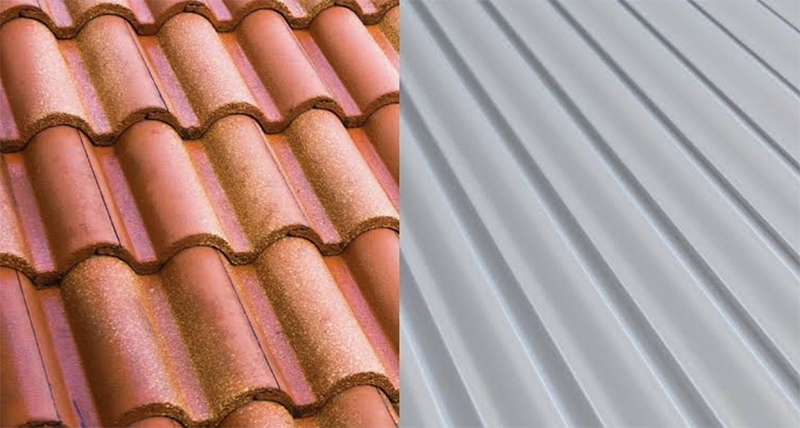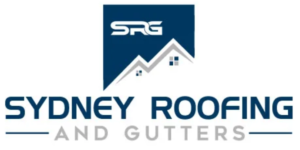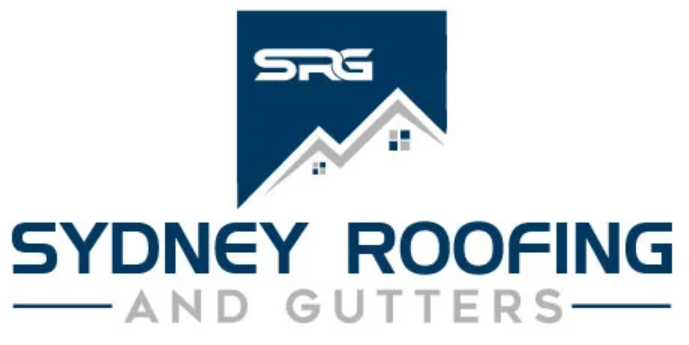Colorbond VS Tile Roof – Which Is Best For Your Home
Do you choose a Colorbond or tile roof? Which roofing material is going to leave you regretting your decision? You want to strike a balance between aesthetics and function. Your roof is the barrier between the outside elements and the interior of your home, you’ll want something that can stand against the weather events in Sydney.
Wind and heat resistance, durability against debris, water drainage efficiency, and product life are some of the factors you’ll have to consider when choosing between Colorbond or tile. Which one you choose will ultimately affect your frequency of repair and maintenance and your overall property value.
In this article, we’ll discuss the pros and cons of each, which factors you should be considering, and which one you should be looking to purchase.

What is ColorBond Roofing?
ColorBond roofing is simply roofing made from ColorBond steel. ColorBond is a brand of steel created by BlueScope that’s specifically manufactured for roofing, walling, guttering, and other home building tasks. As a result, you can expect it to be tailored to the unique challenges of protecting your home.
ColorBond is designed for all of your Australian weather needs:
- Highly durable.
- Heat resistant.
- Cold-resistant.
- Waterproof.
- Debris and dust resistant.
ColorBond technology is constantly being updated to adjust to the ever-changing environmental conditions in Australia which makes it a low maintenance cost-to-quality option.
Let’s take a closer look at ColorBond steel.
ColorBond Aesthetics
One of ColorBond’s signature values is its clean, sleek appearance. Providing a contemporary and smooth aesthetic, the Colorbond range comes in over 22 colours.
ColorBond’s diverse selection of colours means you can match it to any property. This is really helpful when upgrading the roofs of older, more traditional properties which can raise their value significantly.
ColorBond material is simply a very modern design option for any property.
ColorBond Steel Protection
Colorbond roofing materials are made from steel. With a steel core that resembles Zincalume–another BlueScope product–and a topcoat that is lead-free paint, Colorbond materials are made to meet Australian Standard AS1397, ensuring strict adherence to the highest quality grade steel. Colorbond is finished with five layers of protection, including a metal coating with enhanced corrosion and chipping resistance.
All of this technology makes ColorBond extremely thermally efficient. The coating process creates layers that reflect a lot of the sun’s UV rays which increases the energy efficiency of your property. All Colorbond steel is made from recycled materials and can be 100% recycled, making it an environmentally friendly roofing option as well.
Maintenance of ColorBond Roofing
Colorbond roofs are relatively low maintenance. Even when maintenance work is required, there is little chance of damage to the steel sheets as Colorbond is made resilient.
What are Roof Tiles?
Roof tiles are the most common roofing material for Australian homes. A complete roof is made up of many of these individual roof tiles layered on top of one another.
Tile roofing materials come in many types each with its own advantages and disadvantages. However, being that they are roof tiles, they’re all designed to be durable, water- and heat-resistant, and made to last for decades.
Let’s take a look at some of the properties of roof tiles.
Roof Tile Aesthetics
Roof tiles give that class, traditional look to a home property. Various colours and shapes allow for an almost infinite amount of options that can be tailored to any style of home. The type of tile material will of course dictate a lot about the aesthetic value of roof tiles, but generally, roof tiles are laid in distinct patterns:
- Spanish or “S” shape
- French
- Mission or “true barrel”
- Flat and interlocking
- Scalloped
Roof Tile Durability
Unless explicitly from a composite material, most roof tiles get their durability from Mother Nature. The natural properties of roof tile material mean they last long; are some degree water, heat, pest, and chemically resistant, and natural insulators.
Roof tiles are generally heavy materials so will provide exceptional soundproofing. Unlike metal roofs, tile roofing has excellent sound insulation. Depending on the specific material, there can be issues of brittleness, chipping, and breakage and because of this, homeowners with tiled roofs will require more regular roof maintenance and repairs.
Roof Tile Longevity
Roof tiles generally last anywhere from 50 to 120 years depending on proper maintenance and repair. Most manufacturers will easily provide a 50-year warranty with tile roofing due to it being extremely reliable against the natural elements and natural wear and tear.
Roof tiles are also notoriously impenetrable to rot, rust, and insect damage. All in all, tiled roofs are made to last and are a sturdy and reliable roofing option.
Roof Tile Material
The type of roof tile material dictates cost more than anything. All roof tile materials are made to withstand the pressures of weather and insect and animal damage. Certain materials will come with a higher installation and maintenance and repair cost, but other than that, choosing one over the other comes down to budget and aesthetical preference.
Slate is a naturally occurring stone with some very beneficial properties when it comes to roofing tiles. It’s naturally durable which makes it great against debris, corrosion, insects and animals. Slate roof tiles are a low maintenance roofing material option that lasts from 60 – 150 years.
Concrete is a man-made composite of sand, gravel, crushed stone, slag, and other recycled concrete mixed with a cement paste to harden. In its rawest form concrete is porous which can lead to more water absorption and thus poor maintainability when compared with slate. This isn’t a factor to worry over. Modern concrete roofing tiles are now treated in a way that increases durability, and the technology is only getting better.
Concrete roof tiles are a low maintenance roofing material option that lasts about 50 years. If you want the most cost-effective tile material, concrete is the best tile on the market.
Clay is a type of fine-grained natural soil material containing clay minerals. In its rawest form clay can be very porous and, once wet, hold a lot of water; when dry it can also become very hard and brittle. There’s nothing to worry about though. With an added glaze, clay roofing tile durability approaches that of slate roofing tiles. However, it should be warned that clay can be fragile and so prone to chipping and breaking. Clay roof tiles are a very low maintenance roofing material option that lasts from 50 – 100 years.
Aluminium is a very light and physically flexible option. This can make it susceptible to dents and scratches. Despite this, aluminium roofing is a great material choice for homes that can’t carry the weight of heavier tile products. Aluminium is low maintenance, typically lasting from 40 – 50 years, but needs to be carefully considered because of its expensive cost compared with other options.
ColorBond vs. Tile Roof - Which is Best?
Both extremely popular roofing choices for Sydney homes, Colorbond roofing and tiling both have their individual strengths and weaknesses.
Some criteria to guide your decision might be:
ColorBond vs Tile Roof Cost
Primarily, your budget is going to dictate your options. Everything from installation costs to regular maintenance and repair costs needs to be considered when investing in a roof.
Also, the size of your roofing structure is a great factor. How much material you need to complete your roof will influence the final bill. 250 square feet of ColorBond roofing will likely cost more than 200 square feet of tiling and vice versa.
Generally, all things being equal, the cost of roof materials per square meter on average is somewhere around:
- Concrete tile cost: $45-$65
- Clay tile cost: $104
- Terracotta tile cost: $80-$110
- Slate tile cost: $200-$500
- ColorBond roofing: $53-$97
Be sure to speak with your contractor for competitive quotes. As you can see here, ColorBond is one of the most affordable roofing options. Not only that, but it’s a product specifically engineered for property roofing construction–with the technology powering it advancing yearly.
To get a rough idea, a 250-square meter roof using ColorBond will cost about $13,250 to $24,250 given the average material price above.
ColorBond vs Tile Roof Longevity
As stated above:
Slate roof tiles last from 60 – 150 years.
Concrete roof tiles last for up to 50 years.
Clay last from 50 – 100 years.
Aluminium last from 40 – 50 years.
ColorBond steel roofs typically last 70 years. Understand this when thinking about which to choose. How long are you going to be at your property? Is this a short term or long term investment in your property’s market value?
ColorBond vs Tile Roof Energy Efficiency
Both ColorBond and tile roofing materials provide adequate thermal insulation for homes.
Organic roofing tiles absorb a lot more heat compared to metal options like Colorbond. In some cases, ColorBond roofs have been shown to be about 100 degrees cooler than traditional asphalt roofs and providing energy savings of about 50 percent.
The Verdict
With so much to consider, including budget, functionality, longevity, and style, it’s important that speak with professionals before making a concrete decision. Both options are staples in the roofing industry for a reason, you really won’t go wrong choosing either. Ultimately, it does come down to price and aesthetics, there are no huge functional benefits or deficiencies with either choice.
If you need further information, we can guide you through your decision and give you accurate estimates.
We are the best providers of roofing and gutter cleaning services throughout New South Wales so please don’t hesitate to call our trusted team of roof and gutter experts. We’re here to help.



